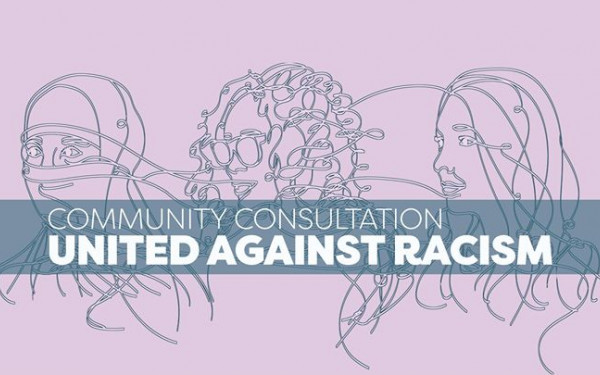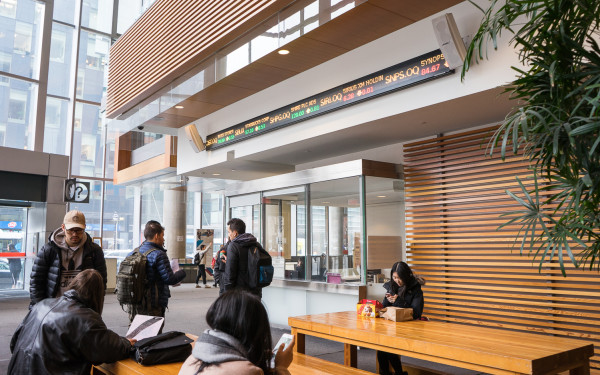CSU Holds Consultation on Racism on Campus
Students Relay Experiences Dealing With Racism in the Classroom
A professor’s use of the N-word in class and students graded differently according to who looks like they would do better were just some of the allegations heard at a student consultation last Friday.
This article has been updated.
The Concordia Student Union launched the student consultation aimed at tackling reports of racial discrimination against students.
As a follow up to the CSU’s community consultation event at the end of January, the CSU found it crucial to further discuss reports that some professors demonstrated racial discrimination against their students.
Maha, a fourth-year Sociology student at Concordia said she has been victim to multiple acts of racism, by both her peers and her professors. Maha wished to remain anonymous because of the sensitive nature of this subject.
She said that ever since revealing she is Muslim, her professor began to react differently to her comments compared to other students.
“The thing with these issues is that I can’t say that it’s because he found out that I am Muslim that he started acting differently,” said Maha.
Arts and Science Councillor Aouatif Zebiri organizes these consultations in order to take issues that are presented during the event and submit them to CSU council and executives for further investigation, through a new working group.
“It’s a very important consultation and it’s a very important event […] for students as well because we’re here to support them, but to be able to support them, we need to know the problems that they’re facing,” said Zebiri.
The CSU led these consultations to focus on the power dynamics between professors and students at Concordia.
Zebiri said some students reported that they overheard their professor tell the teaching assistant to base the grades off who seems more likely to succeed, rather than grading the assignments based on the quality of their work.
Another student also said professors would allegedly use the N-word during class to explain an assigned text, and later, would become furious when students spoke about the professor’s misconduct. Despite the professor receiving multiple formal complaints about the use of inappropriate language, he allegedly continued to use the N-word, arguing that it was used respectfully in the context that the word did not end in the “-er” form.
“Things that were shared during the consultation were sometimes shocking and just hard to accept that these things are actually happening at Concordia,” said Zebiri.
She continued to explain that some students in the Arts and Science faculty were not happy with the lack of diversity in their course readings. They found the authors that were assigned to them were mostly white male scholars.
“If I look back at the readings that I had to do and I’m in Sociology, we’re literally studying different societies and different perspectives and most of the authors that we studied were white and most of them were also male,” said Maha.
Maha explained that the domination of white male authors in the curriculum doesn’t allow readers to vouch for different perspectives.
The CSU is currently in negotiations with different professors to try and persuade them to allow students to suggest readings.
As for the action plan to implement this new working group, the CSU proposes to implement a permanent plan of action for future CSU coordinators to follow through with these consultations.
Zebiri feels future CSU executives should be mandated to work on issues like this.
“These issues shouldn’t be tossed around, but continue year after year until we feel that students are supported enough and are helped enough.”
Zebiri hopes that the CSU will continue running these discussion groups in order to someday invite professors and faculty members to these groups to understand what students want from their professors.
“The discussion can’t only be done with students on their own, we need professors to see the other side and see how we can collaborate with one another,” said Zebiri.
So far, both events have not included professors and faculty members. Zebiri said she found having professors and faculty members attend these discussions too early might deter participants from sharing their experiences.
Equity and Diversity
At the beginning of September, Concordia hired its first Equity and Diversity Officer, Mark Villacorta, who will ensure the inclusion of all students in the university mandate.
Villacorta tackles issues that are in ties with diversity and cultural education. He has the responsibility to plan developing an equity and diversity plan for faculties, and come up with workshops and training sessions for faculty and administrators to teach them more about issues that touch diversity and equity.
The next consultation will be held at Loyola campus on March 21, and a second one at the downtown campus on March 23.
With files from Miriam Lafontaine.
This article previous stated that a student alleged that teaching assistants were told to grade based off skin colour. That is not the case. The Link regrets the error.

_900_665_90.jpg)





